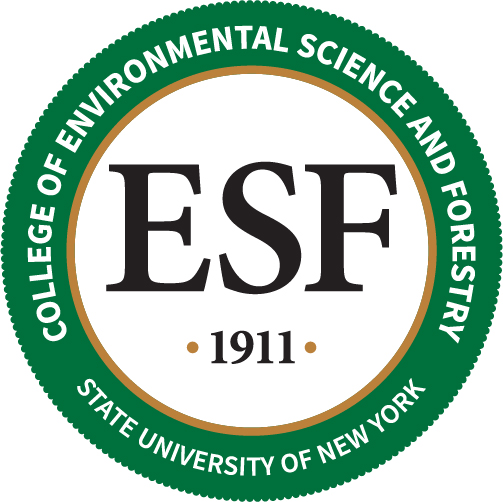Newswise — Students at the College of Environmental Science and Forestry (ESF) in Syracuse, New York, had a challenge: You’ve met the president in an elevator. What do you tell him about the environment? The result: 54 impassioned pleas on behalf of the planet.
In observance of Earth Day, the students wrote brief “elevator speeches” to have at the ready if they happened to encounter President Donald Trump as a captive audience, however briefly. The most common theme in their speeches was urging Trump to take action to mitigate climate change, especially regarding the development of alternative energy sources such as solar power over coal and other fossil fuels.
“The majority of scientists say it (climate change) is caused by human activity and it should not even be a debate at this point. I respect what you believe but I hope within the next couple years you see the truth and try to do something to improve our climate,” one student wrote. Several urged him to reconsider the decision to pull the United States from the Paris Agreement.
Some attempted to educate Trump about the value of science. “I just need to tell you that scientists are always in pursuit of the truth, we want what is best for our country and for humanity,” one student wrote.
Others cited the value of the natural environment and called for its protection: “It is from our environment that we receive all that we have including food, clothing, building materials, water, technology, medicine, and even money,” one student wrote. “If it is the environment that provides all that we need to survive, why do we choose to continue exploiting it?”
The elevator speeches came from students in classes called Public Presentation Skills and Advanced Presentation Skills, taught by Tom McGrath, a lecturer in ESF’s Department of Environmental Studies’ Writing Program. All academic programs at ESF are focused on the environment.
“As current and future stewards and agents of change, students need to be environmental participants both inside and outside of academic walls,” McGrath said. “At ESF, they gain the skills to communicate about environmental concerns with various audiences in concise, meaningful ways. It is incumbent on students to represent their story on a local, national and global stage. Students’ educational experiences set them on this journey to what is possible.”
ESF President Quentin Wheeler said the challenges such as this one help budding scientists learn how to keep the public informed about scientific knowledge.
“As society faces the realities of the biodiversity crisis, climate change, and other environmental challenges, it is vital that scientists be effective communicators, sharing the best available evidence. We all benefit when those most familiar with the strengths and limitations of scientific knowledge are also good storytellers capable of informing public understanding and discourse," he said.
The speeches touched on a wide range of subjects. Students urged Trump to be mindful of the health of Earth’s oceans, pursue environmental justice, consider how a border wall with Mexico could affect wildlife and work to protect water quality. They expressed concerns about species extinction, antibiotic-resistant bacteria, waste reduction, wildfire management programs, pesticide use, deforestation, environmental justice and problems related to agriculture.
One student argued against offshore drilling, dotting her argument with statistics: “Did you know that in the BP oil spill alone, 4,768 animals died alongside the 4.9 million barrels of crude oil that seeped into the ocean? … I advise for the sake of our environment and our nation you revoke your proposal for offshore drilling.”
A couple students appealed to Trump’s experience in the business world and his wealth, saying he could invest in sustainable energy. One pointed out that a healthy environment is essential to the people who keep business running. “Your businesses use paper which comes from healthy trees, they have electricity and heat running throughout their buildings which come from burning fossil fuels, and the people within those buildings eat food which comes from the Earth,” she wrote.
One student made climate change a personal issue for the president, predicting what could happen to Trump’s Florida resort, Mar a Lago, if sea levels rise. “Because of an executive order you made in August, infrastructure to guard against flooding will not be created. Sea levels have been estimated to rise 10 feet by the year 2100. By that time, your whole golf resort will be underwater and forgotten about,” she said.
Another got personal about recycling: “Do you know how important it is to recycle? There is so much waste on this planet and doing small little things like recycling is key,” he wrote. “Mr. Trump, can I ask you something? Do you recycle and would you consider starting today?”
A few students took the opportunity to reword Trump’s campaign slogan. “I hope you will consider this advice as you continue to make America great,” one student wrote. Another advised: “Make America green again.” One called for protection of national monument lands, saying, “If you want America to be great again don’t get rid of the things that already make it great.”
And finally, “So, I ask you why not make the environment great again?”
